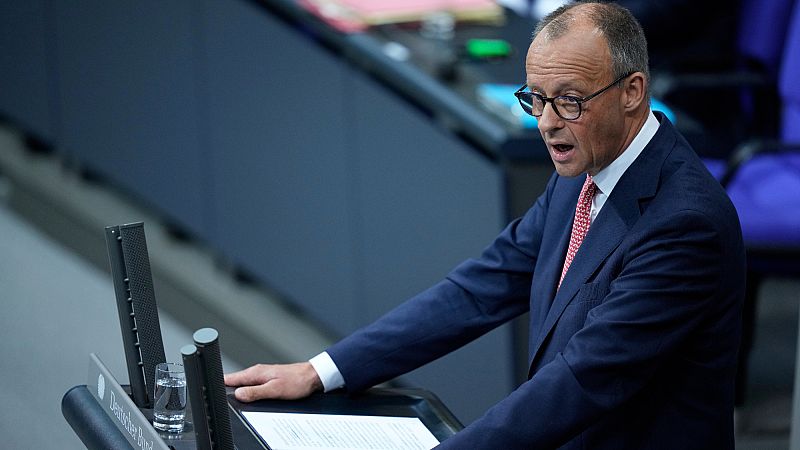
Germany’s chancellor Friedrich Merz said he was “cautiously optimistic” that the European Union would secure a trade deal with the US within the next few days, or “by the end of the month at the latest”.
Merz also told lawmakers in the Bundestag on Wednesday: “I myself am also in close contact with the American government, with the president and the European Commission.”
Merz said that the aim is to reach an agreement “as quickly as possible that links mutual trade between the US and the European Union with the lowest possible tariffs”.
As President Trump’s pause to so-called “reciprocal tariffs” is set to end on 1 August, the US administration has started to send out letters to trading partners, notifying them of the duties that will be applied to their US exports.
So far, Washington has only secured trade frameworks with the UK, Vietnam, and China. Over a dozen other countries have received letters outlining tariff rates, including South Africa, South Korea and Japan. The EU has yet to sign a trade framework with the US or receive a letter.
President Trump said on Tuesday that the administration “can make a lot more deals” but claimed: “It’s just too time-consuming. It just makes it more complicated. And we can do things over the years, too.” Trump was defending his use of letters over more traditional negotiation processes.
The US president had threatened a duty as high as 50% on EU goods sent to the US, although it now appears that Brussels will be faced with a 10% tariff.
Separate from so-called “retaliatory” duties, the EU is also facing a 25% tariff on automobiles and car parts sent to the US, as well as a 50% tariff on steel and aluminium exports. The two sides are now looking for carve-outs to alleviate the impact on certain industries.
Duties on goods sent to the US are set to hit Germany hard as the US remains the most important destination for German exports.
The economy is also struggling to find its feet after Europe’s energy price spike and the COVID-19 pandemic, hindered by ageing infrastructure, excessive bureaucracy, and low productivity.
In contrast to his tone when referring to the UK, Trump has been more hostile towards the EU during the negotiation process. He notably labelled the bloc as "nasty" and claimed that it was formed to "screw the United States".







